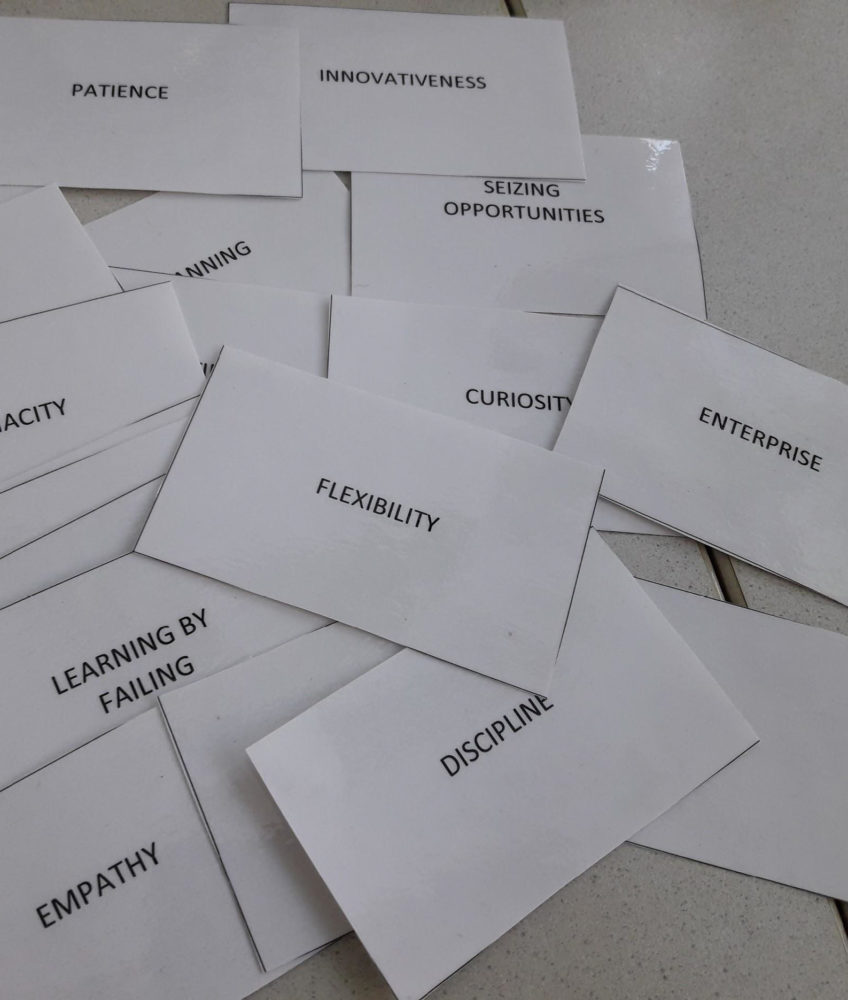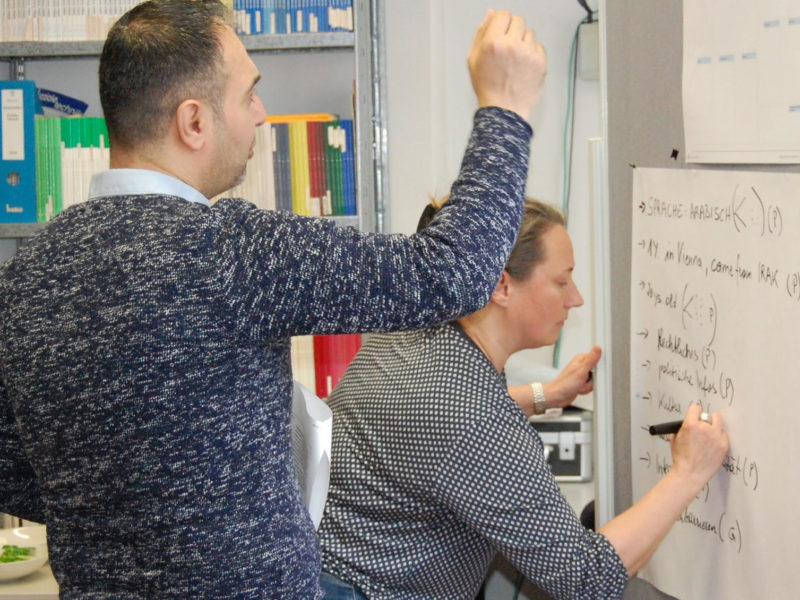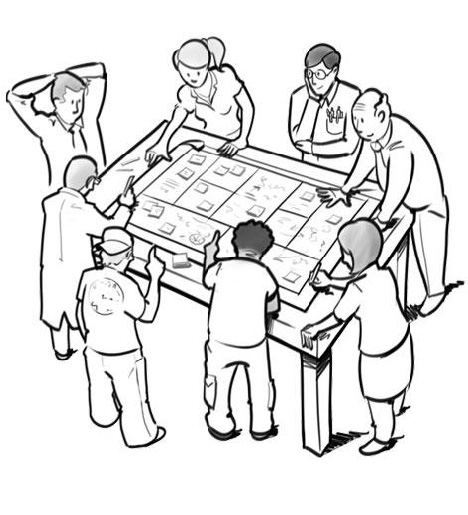Basics of Entrepreneurship

Available languages: EN, DE, FR, ITA, AR
Time needed: 30 min (explanation, game) + 20 min (discussion)
STS
LI1
LI2
A very brief presentation is made on the hard and soft skills necessary for entrepreneurs. Apart from technical skills and a managerial mindset, there are certain entrepreneurial attitudes, 20 of which are listed. Each participant receives a set of cards stating one of these entrepreneurial attitudes and are requested to select the five most important ones. Depending on the size of the audience, their selection is discussed first in a group or directly in the plenum. There is no correct answer. The list by the Kauffmann Foundation is just one possible selection.
Requirements to make the best out of the material
In preparation, the Word file with the cards should be printed, laminated and cut out for each participant. If participants have difficulties with the host country language and/or English, organisers should prepare translations of the technical terms into the relevant mother tongues (using Google translate or similar), either for the cards themselves or at least a list that can be used by the participants.
How to use this tool
After the initial introductory presentation, participants are requested to think about their own priorities with regard to entrepreneurial soft skills. The selections are then discussed and reflected upon. There is no “right” answer.
Expected outcome
This session induces participants to make up their minds about important soft skills necessary for an entrepreneur. In addition, it could be interesting to see if cultural differences/preferences emerge, e.g. if people from Arabic countries tend to select certain entrepreneurial skills while people originating from Asia, Africa or Latin America tend to prioritise other skills.
This tool is licensed under a Creative Commons Attribution-NonCommercial-ShareAlike 4.0 International License.






